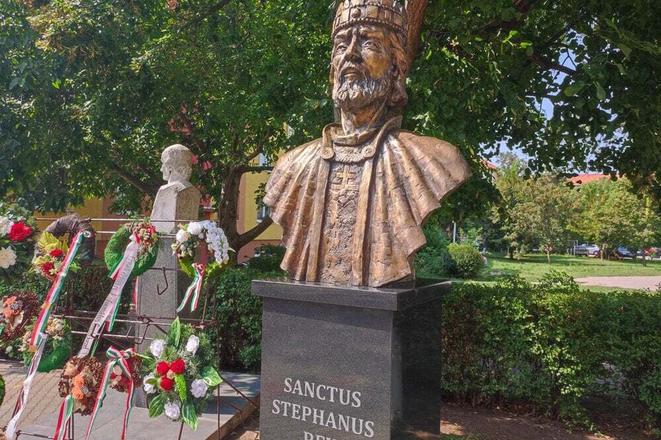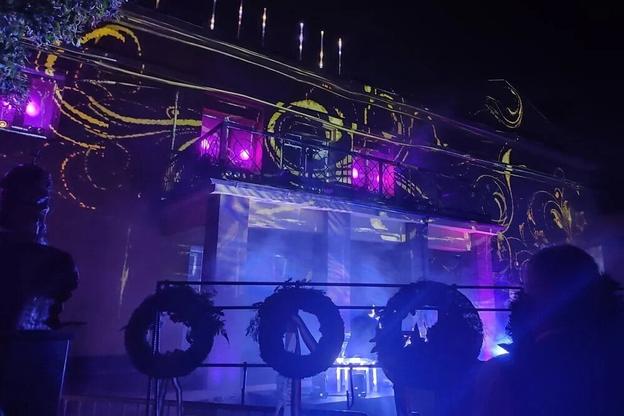Recently, a bronze bust of Stephen I, the first king of Hungary, was unveiled in Nové Zámky, south Slovakia. The event happened on the occasion of celebrations in his honour, reports My Nové Zámky.
In Hungary, August 20 is a national holiday, and the Hungarian minority living in Slovakia joins the celebrations every year.
The event included a light projection on the building of the local branch of the Csemadok Hungarian minority organisation, showing scenes from the wars during the history of Hungary among other things. More than 70 smart lamps and several projectors were used for this purpose and the projection was repeated twice.
The bust is mounted on a metre-high pedestal made by artist János Lukács. It stands in front of the Csemadok building, right next to the bust of the poet and priest Gergely Czuczor.
"It cost €9,360 and was financed from donations from the Hungarian community, combined with a little over €2,000 from funds from Hungary," explains Csemadok chair József Danczi. He adds that the the branch was looking for a place to lay wreaths during the celebrations on August 20 since it lacked a suitable place.
Stephen I of Hungary
Born in circa 975 and given the pagan name Vajk. Between 995-997 he ruled the Duchy of Nitra. He then became the Grand Prince of Hungarians until around 1000, when he became the first King of Hungary, a post he held until his death in 1038.
Although there was no dispute surrounding the event this time around, the same cannot be said about a similar event in 2009 in nearby Komárno.
Back then, a significantly larger statue of Stephen I was unveiled in Tržničné Námestie square, with residents contributing more than €12,000 in a public collection.
The Slovak Foreign Affairs Ministry issued a diplomatic note, not recommending then Hungarian president László Sólyom to come to Slovakia, citing a security risk. Nevertheless, the latter came on foot to the middle of the bridge between the towns of Komárno and Komárom in Hungary. He then turned around and went back.
Shortly after its unveiling, unknown perpetrators threw eggs at the base of the statue.


 The bust of Stephen I of Hungary. (source: Anton Hrachovský)
The bust of Stephen I of Hungary. (source: Anton Hrachovský)
 The projection on the Csemadok building. (source: Anton Hrachovský)
The projection on the Csemadok building. (source: Anton Hrachovský)